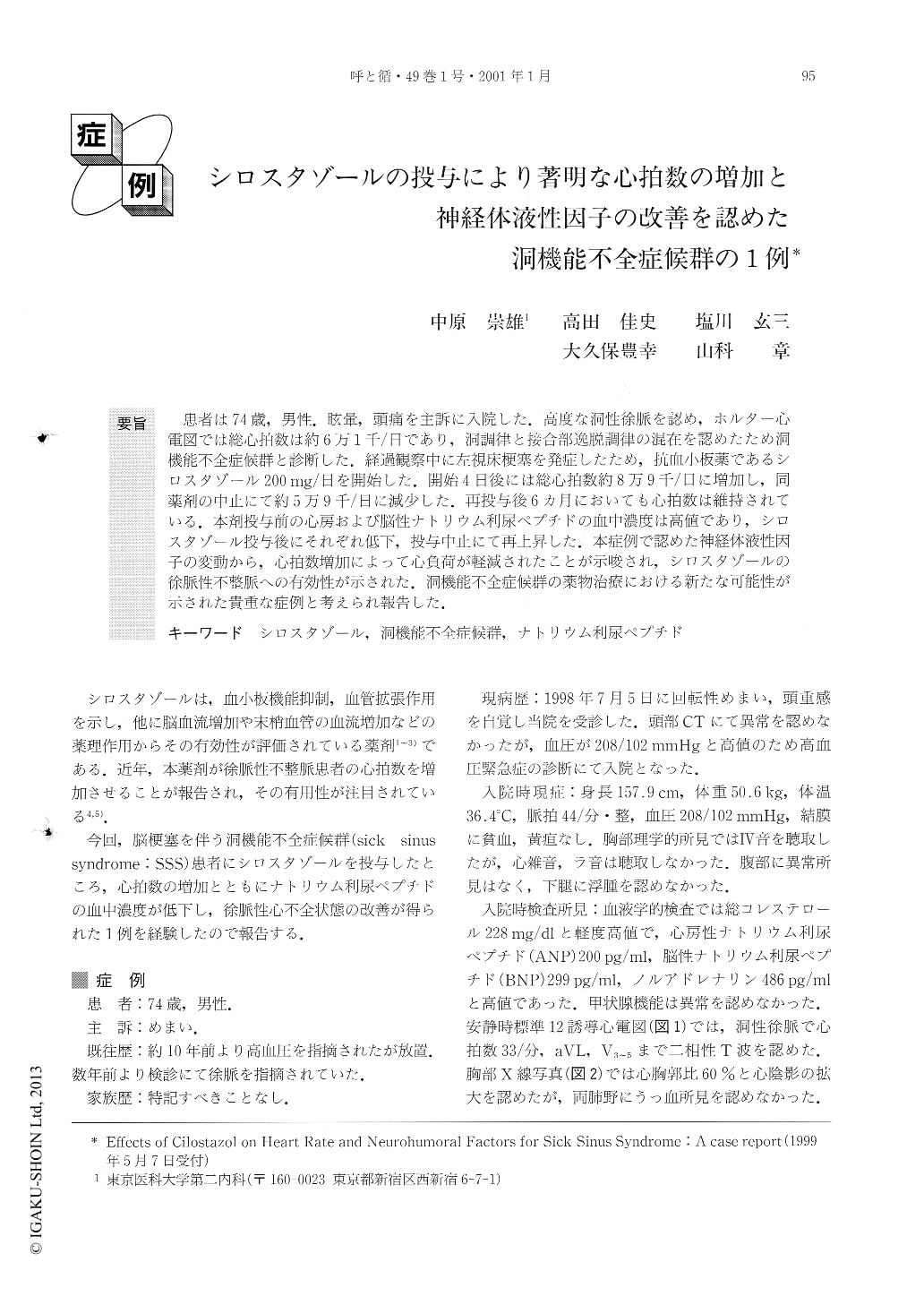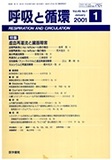Japanese
English
- 有料閲覧
- Abstract 文献概要
- 1ページ目 Look Inside
患者は74歳,男性.眩蛍,頭痛を主訴に入院した.高度な洞性徐脈を認め,ホルター心電図では総心拍数は約6万1千/日であり,洞調律と接合部逸脱調律の混在を認めたため洞機能不全症候群と診断した.経過観察中に左視床梗塞を発症したため,抗血小板薬であるシロスタゾール200mg/日を開始した.開始4日後には総心拍数約8万9千/日に増加し,同薬剤の中止にて約5万9千/日に減少した.再投与後6カ月においても心拍数は維持されている.本剤投与前の心房および脳性ナトリウム利尿ペプチドの血中濃度は高値であり,シロスタゾール投与後にそれぞれ低下,投与中止にて再上昇した.本症例で認めた神経体液性因子の変動から,心拍数増加によって心負荷が軽減されたことが示唆され,シロスタゾールの徐脈性不整脈への有効性が示された.洞機能不全症候群の薬物治療における新たな可能性が示された貴重な症例と考えられ報告した.
A case of sick sinus syndrome remarkably relieved byadministration of cilostazol was described. A 74-year-old man was admitted to our hospital presenting withvertigo and headache. Holter electrocardiogramrevealed marked sinus brady-arrhythmia with escapedjunctional rhythm (total heart beats of 61,000/day).Two weeks later, the patient had a sudden attack ofcerebral infarction, and an antithrombotic agent. cilostazol (200mg/day) was administrated to prevent reccurent attacks. Cilostazol increased the heart rate remarkably (total heart beats of 89,000/day) with the consequence that plasma concentration of natriuretic peptides, which are potent biochemical makers of cardiacoverload, remarkably decreased. After an interruptionof cilostazol administration, the heart rate decreasedand these plasma concentrations increased again. Theincrease of heart rate accompanied by an improvementin neurohumoral factors indicated the efficacy of cilostazol to reduce the cardiac overload in this patient. Apossible role of cilostazol in the treatment of bradyarrhythmia was suggested.

Copyright © 2001, Igaku-Shoin Ltd. All rights reserved.


